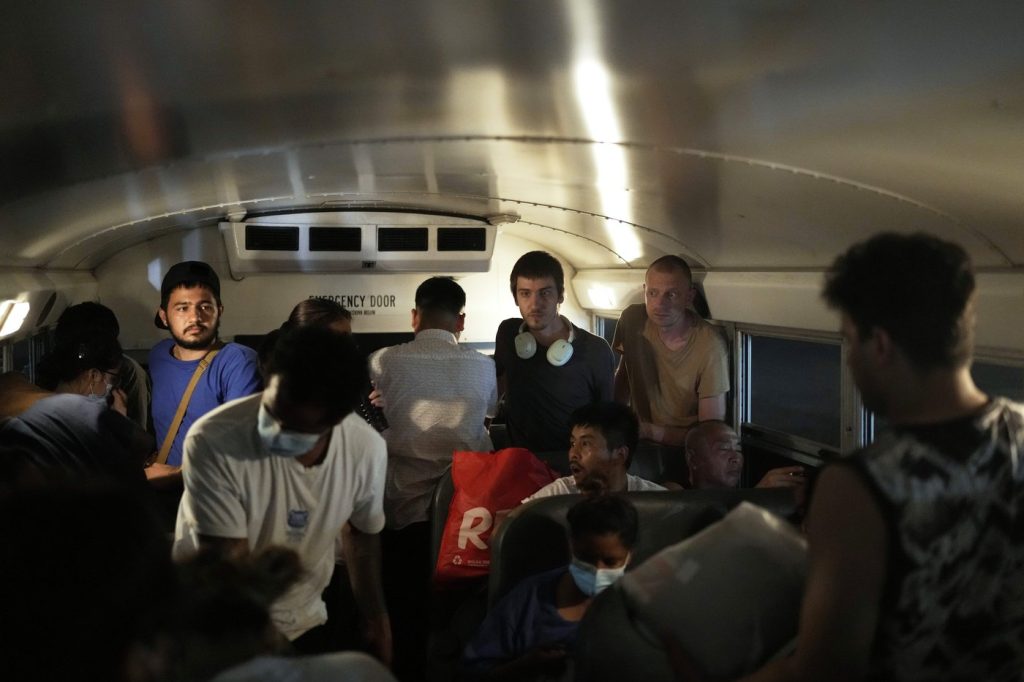PANAMA CITY (AP) - After facing weeks of lawsuits and criticism from human rights organizations, the Panamanian government released dozens of migrants on Saturday, March 8, 2025, who had been held in a remote camp following their deportation from the United States. Authorities informed these migrants that they had 30 days to leave the Central American nation.
Among the released migrants was Hayatullah Omagh, a 29-year-old refugee from Afghanistan who fled his home country in 2022 after the Taliban regained control. Omagh expressed his despair over his situation, stating, "We are refugees. We do not have money. We cannot pay for a hotel in Panama City, we do not have relatives. I can’t go back to Afghanistan under any circumstances… It is under the control of the Taliban, and they want to kill me. How can I go back?"
Panamanian authorities mentioned that deportees could extend their stay by an additional 60 days if necessary; however, many, including Omagh, remained uncertain about their future. Omagh arrived in Panama City alongside 65 other migrants from various countries, including China, Russia, Pakistan, Iran, and Nepal, after facing weeks of detention in poor conditions. The Panamanian government aimed to cooperate with the Trump administration to create a "deterrence signal" to potential migrants.
Human rights advocates and lawyers were present at the bus terminal to assist the released migrants in finding shelter and resources. Despite the releases, dozens of other individuals remained detained in the camp. Among them was Nikita Gaponov, a 27-year-old Russian who fled his home country due to persecution related to his LGBTQ+ identity. Gaponov revealed that he was denied the opportunity to make an asylum claim at the U.S. border, stating, "Once I get off the bus, I’ll be sleeping on the ground tonight."
Despite the challenges they faced, some deportees were considering making their way to the U.S. again. The deportees, many from Asian countries, were part of an agreement between the Trump administration, Panama, and Costa Rica designed to expedite deportations. Critics have pointed out that this arrangement effectively exports the U.S. deportation process. Concerns escalated when hundreds of deportees held in a hotel in Panama City communicated their fears of returning to their home countries by displaying notes from their windows.
International law allows individuals fleeing conflict or persecution the right to apply for asylum. However, those who resisted returning home were moved to a remote camp near Panama's border with Colombia, where they endured weeks of harsh conditions and were barred from accessing legal counsel or contacting the outside world.
Lawyers and human rights defenders described Panama and Costa Rica as "black holes" for deportees, expressing concerns that whether through release or detention, the Panamanian authorities were attempting to distance themselves from the increasing human rights criticisms. Omagh expressed his apprehension about returning to Afghanistan, identifying as a member of the Hazara ethnic minority and stating that his life would be at risk under Taliban rule. He noted that he had tried for several years to live in other countries but was denied visas.
When attempting to seek asylum in the U.S., Omagh had hoped for freedom but faced repeated rejections. He recounted, "My hope was freedom. Just freedom. They didn’t give me the chance. I asked many times to speak to an asylum officer and they told me ‘No, no, no, no, no.’” Although relieved to be released from the camp, he and others described the scarcity of food, extreme heat, and aggressive treatment from Panamanian authorities.
Some released individuals expressed desires to continue their journeys northward despite already having been deported. For instance, a Chinese woman, who spoke anonymously for fear of repercussions, immediately sought a Coke upon exiting the bus before planning her next move to the U.S. She affirmed her goal of "fulfilling my American dream."










